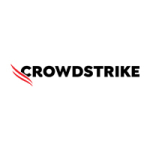What is our primary use case?
In our organization, Splunk is used in our data centers.
We have integration services and other types of systems in our new IoT architecture. We're using it to capture information.
We use Splunk as an aggregator for monitoring information from different sources, however, for our protection suite, we're using Comodo.
It's designed to collect data from different points. It has a lot of integrations built into it and that's why we're using it.
We use it for our enterprise more - such as for messaging. There's a lot of stuff we do on our integration services layer that we use Splunk for. For security purposes, we're using Comodo. Therefore we're not using Splunk for security purposes. We're using it for monitoring what's happening at our integration services layer.
How has it helped my organization?
Splunk indicates when we've got problems popping up somewhere or we're not getting the flow we expected. If there's a problem, we have those flagged and we use it for logging.
What is most valuable?
Splunk handles a high volume of data that we have, and it does it really well.
For what we're using it for, we're happy with its functionality.
The reporting aspect is good and it does what I need it to do.
From an operational standpoint, it helps us on the operations side and it also shows where we're having issues.
It connects to a lot of stuff. We can collect information from a lot of sources.
What needs improvement?
The interface or maybe some settings need to be improved a bit. It cannot be perfect, however, the issues may be related to the configuration or setup.
If you monitor too much, you can lose performance on your systems. You have to be careful what you're monitoring. If you monitor everything, everything stops working. You can go overboard in monitoring. You have to plan your monitoring pretty carefully.
It could be easier for beginners. As it is, right now, You have to have a good understanding of the solution in order to use it properly.
That said, as the user, I'm at a higher level of management on the architecture side in dealing with resilience. My concerns are different from other user concerns. Also, most of our clients are using it way more than we're using it.
For how long have I used the solution?
We've used the solution for more than a decade. It's been a long time.
What do I think about the stability of the solution?
We haven't had any problems with stability. There are no bugs or glitches. It doesn't crash or freeze. It's reliable.
What do I think about the scalability of the solution?
We've never had an issue with scalability. If a company needs to scale, it can.
The danger of Splunk is that it can get too big too quickly and you have to be very careful with what you want to be monitoring due to the fact that if you monitor too much, you can slow down things and you can hurt your performance on your system. We have to be very careful of what we're logging.
We have about 12 users on the solution right now.
We do not plan to increase usage in the future.
How are customer service and support?
We don't use technical support very much. We've been using it for so long, we generally understand it and do not require assistance.
Which solution did I use previously and why did I switch?
We used to use Splunk a lot more, however, we've moved more to Comodo right now. I'd say we've moved to Comodo from Splunk in a lot of areas.
On the security side, we use Comodo. Not all of our clients even have Comodo. A lot of them are using Splunk, however, a lot of them are using Splunk for enterprise operations and network operations items. Some of them are using security and a lot of them aren't. Splunk is offered as a security option now, however, originally, when you used it, it was to collect enterprise operations information and know-how your systems are running.
How was the initial setup?
We've been using it for a long time, therefore, I don't even remember when we set it up or how it went. We do keep it updated and use the latest versions.
I only have one or two people doing maintenance on it.
What was our ROI?
ROI's a hard thing to pin down. We've had it for so long, it's part of our core operating infrastructure.
What's my experience with pricing, setup cost, and licensing?
Everything we do is either yearly or multi-year. I don't know if there is any additional cost to standard license fees.
What other advice do I have?
We use Splunk and we also sell and support it for our clients.
Normally our policy is to keep software updated to the latest version.
The main issue is that we do enterprise architecture and network and security operations. We recommend certain platforms to clients. We don't always sell Splunk directly to them due to the fact that, since we're being hired to help them make choices, we need to be neutral. In the cases where it doesn't make sense, we don't sell it. We just help clients make decisions.
I don't know which version of the solution we're using. I'm an architect; I'm not on the operations level. I'm not the one who actually uses it. Our operations use it. I get dashboard results and I do reports that are based on it, however, I'm not the one actually running it. We have a NOC and a SOC and others use it a lot more individually. They have a lot more interaction than I do. I'm getting reports out of it. Others are actually connecting to it, using it as a tool. I'm not a tool user. I'm an information user.
All Splunk is, is data collection and it can sort things out on a dashboard. However, a lot of what Splunk does is collect data and you have to decide what kind of information you're going to let it collect. When we're doing design operations we have to really pay attention to what we're doing, so we don't actually slow things down or impede things. The reason we use Splunk is we put a lot of data into it.
With Splunk, you need to really be careful about what you're monitoring and how you use it, to get keep the results working. It's a good tool if you know what you're doing and what you need to be logging. You need to be aware of what you're logging to ensure it isn't going to cause problems with your performance.
I wouldn't recommend it for somebody who's coming in new. Of the clients we have using it, I don't know if any of them don't have professional IT running it. It's important to really understand what's going on.
I'd rate the solution at an eight out of ten. In certain environments, it could be a bit complex. It's not something you could just drop into an organization, you need to be trained to use it. You need the experience to use it properly.
Disclosure: My company does not have a business relationship with this vendor other than being a customer.


















